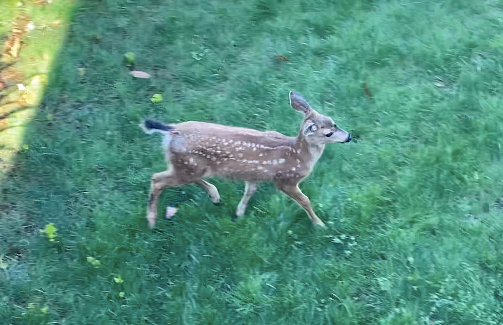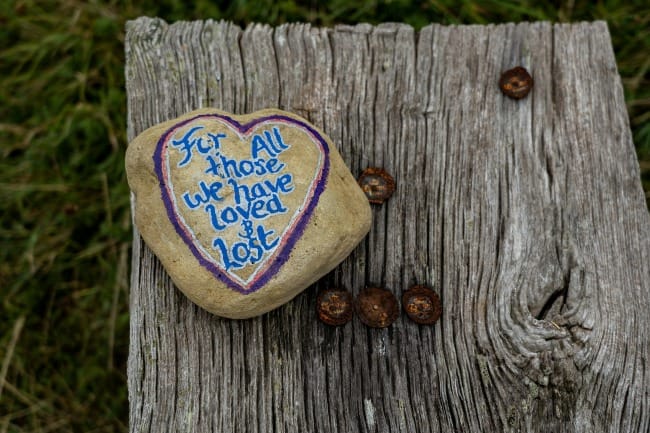After a two-month break, it is nice to be writing again. I needed the pause in order to focus on our family's transition from Bellevue, WA to Camano Island, WA. The move has been in the works for a long time - we knew that once Circlewood started to grow and our big project on Camano, Circlewood Village, began to get some traction, we would need to make the leap, leave the place we love, and become part of the Camano community. You can read more about this decision HERE.
We have done the hard work of saying goodbye, getting our home ready to pass on to the next caretakers, and exploring a new community. We are slowly getting our bearings and settling into a wonderful home that sits on a bluff and offers incredible views of Puget Sound, Whidbey Island, the Olympic Mountains, and simmering sunsets.

We have enjoyed the sight of eagles soaring by, and as well as the deer making their way through the woods that line both sides of the driveway. We are taking over the care of this place from Tom and Diane Ruebel. Tom is a Circlewood board member, and Diane is a retired pastor and spiritual director. They have handed us a legacy of stewardship and hospitality that we are excited to continue.
Though we have physically relocated, the transition is ongoing, and, like most significant changes, it is a bit like riding a roller coaster.

We are navigating the pain of uprooting, the maze of paperwork, the deep fatigue of moving, and, of course, the excitement and anxiety of settling into a new place. Tears and laughter have been regular companions as we twist and turn our way through this moment. I'm sure you have been through something similar at some point in your life - after all, change is built into the very fabric of creation.
We Are All in Transition
Creation is constantly on the move, from the swirling galaxies recently revealed in stunning glory by the Webb telescope, to the cells inside our bodies that are constantly dying and being replaced. Our lives are constantly on the move as well. Every day we make decisions that take us one way and not another. Every day we experience a little more of life and, if our hearts and minds are open, our understanding of the world deepens and we see ourselves in a new light. For people of faith, this is to be expected, for it is in the Creator that "we live and move and have our being" (Acts 17:28).
Change is always personal; every person and situation is unique, and each of us experiences transitions differently. It is also always communal; our lives are fundamentally interconnected and interdependent, constantly affecting and being affected by others in ways we cannot always discern. And, of course, there are communal transitions that affect us all, such as the current shifts in global climate that impact every creature on the planet. The transition from a destructive way of live to one that is in harmony with the earth is the great challenge of our time.
If you are facing a unique transition in your life, part of a community going through change, or thinking about what you can do to help humanity develop a more sustainable way of life, I offer here a few lessons I'm learning in the midst of my current transition.

There is No Way Around Loss
Change brings loss, even change that ushers in a better future. It might be specific aspects of what we are leaving behind, or the realization that we have lost a sense of safety, security, and control. Avoiding or minimizing these losses does not make them less real, it makes them more likely to affect us in unconscious ways.
The way through loss is grief, which acknowledges not just the loss but the pain that comes with it. Be it personal, social, or ecological in nature, there is no way around grief if we want to be able to step into whatever new path lies before us. I am grieving the loss of a community in which our family planted deep roots, a home that we loved, and the stability that has marked our lives for the last 15 years. Many people of faith are grieving the loss of people, purpose, and power that their churches used to have. There has also been a sharp rise in ecological grief (and anxiety) as we experience loss of biodiversity and natural beauty.
It is hard to grieve, but comfort can be found in the knowledge that grief is rooted in love. And it is love, I believe, that ultimately enables new life to be born from loss. Love keeps us turned outward toward the world and open to new possibilities. It maintains a sense that there is purpose to life, and that, despite the losses we experience, "all shall we well, and all manner of thing shall be well." There is a profound mystery in the relationships between loss and love, change and hope - it is captured in the paradox at the heart of Jesus' message: For those who want to save their life will lose it, and those who lose their life for my sake will find it.
Change is Revelatory
When a way of life is upended, whether by choice or circumstance, we are invited to see things in a new light - habits, thought patterns, beliefs, relationships, commitments may all look different in the light of one's new reality.
In my transition, I have been paying attention to how I make decisions. I've always thought of myself as someone who thinks things through before deciding, weighing the pros and cons, and being pretty good at predicting outcomes. I have come to see that, while this is partially true, I also make many decisions based on intuition and feel. This surprised me, but once I accepted it, I began to see past decisions in a new light, and I feel a little more self-aware as new decisions come up.
Part of what has made me pay attention to the thinking aspect of my decision making is that it has helped me feel in control. Control is almost always an illusion, and most of us do what we can to keep the mirage going, living as if we control our personal, communal, and planetary destiny. It's understandable - lack of control feels like chaos. But what if that's the place where the Creator meets us, inviting us, from time to time, to fall apart like clay and trust the potter's hands?
Faith is Trust
Faith is often described as mental assent to particular doctrines, or generic belief in a higher power. When times of transition come, when the pain of loss begins to sting and our illusions of control begin to crumble, faith becomes much more earthy, focused on trusting God in the midst of the unknown. This does not require meditating in silent contentment as our world falls apart; frequently it means praying (or demanding) that God show up and do something to help. This is the place of honest dependence, and it is often there that God does indeed show up, often in surprising and invigorating ways.
Excited for What's Next
As I begin to see the other side of this transition, I will continue to grieve what has been lost, seek to learn new things about myself, and try to keep trusting that God will not only continue to show up, but is always present. I am also excited about what comes next, for me and my family, and for Circlewood. I can already see new opportunities taking shape, some that could never happen had we not said yes to change. I know that challenges lie ahead, more twists and turns and tender moments when we may wonder what in the world we are doing. But that's the nature of the world, pulsing and churning with the spirit of the Creator, who is always making things new.
With you on the Way,
James
As always, I love to hear from readers. Email me directly at james.amadon@circlewood.online. You can also comment below.
Subscribers, you can add a comment by clicking HERE.
Like what you are reading? Consider joining our supporter community, The Circlewood Stand.